Search Results
Showing results 81 to 100 of 166
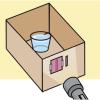
Bending Light
Source Institutions
In this optics activity, learners make a lens and explore how the eye manipulates the light that enters it.
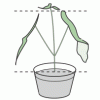
Do Plants Need Light?
Source Institutions
In this food science activity, learners conduct an experiment that demonstrates the importance of light to plants.
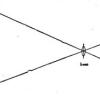
Bring it into Focus
Source Institutions
In this activity (page 2 of PDF), learners play with a lens and a piece of paper to focus an image on the paper. Learners look at different things, and see how the lenses affect the image.
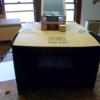
Cardboard Box Camera Obscura
Source Institutions
In this activity, learners construct a device that projects images onto a surface, so they can trace landscapes and other sights.
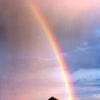
Release the Rainbow
Source Institutions
In this activity, learners create a water prism to break light into the seven colors of the rainbow.
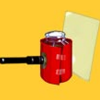
Turbidity
Source Institutions
This is an activity about turbidity, or the amount of sediment suspended in water.
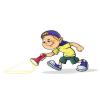
Changing Colors
Source Institutions
In this activity, learners will explore how different colors of lights interact with objects around them. Will a blue object stay blue with a red filter?
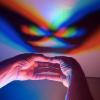
Colored Shadows
Source Institutions
In this optics activity, learners discover that not all shadows are black. Learners explore human color perception by using colored lights to make additive color mixtures.
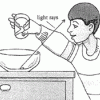
Make Money Appear Before Your Eyes
Source Institutions
In this optics activity, learners use water to make a coin "appear" and "disappear." Use this activity to demonstrate how light refracts and introduce light as waves.
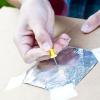
Measure the Sun's Size
Source Institutions
In this activity, learners make their own pinhole viewer in order to measure the size of the sun.
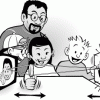
Pictures From Light
Source Institutions
Did you know that using a lens one can bend light to make pictures of the world? It's true!
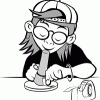
Bubbularium: See the Colors in Bubbles
Source Institutions
With little more than a flashlight, a straw, and a plastic lid, make an observatory so you can see the amazing colors in bubbles.
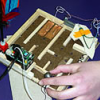
Marble Mazes
Source Institutions
In this activity, learners create a marble maze that contains sensors. As a metal marble triggers the sensors, the Pico Cricket turns on lights or spins motors.

The Old White Sheet Trick: Light and Insect Behavior
Source Institutions
In this outdoor, nighttime activity, learners gather around a brightly lit, white surface and study the behavior of nocturnal animals attracted to the light, particularly night fliers.
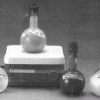
Pearlescent Pigments
Source Institutions
This is written as a display, but can easily be adapted to a hands-on activity. Learners observe and shake containers of shiny liquids.
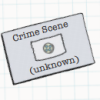
Super Sleuths
Source Institutions
In this physical sciences activity, learners use science to solve a "crime." Learners collect trace evidence (glitter) and explore its characteristics, such as color, size, shape, and light reflection
Transparent Gelatin
Source Institutions
In this optics activity, learners explore how they can make gelatin stop light, but not stop them from seeing fruit suspended within.
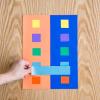
Color Contrast
Source Institutions
Do you have a hard time matching paint swatches with your furniture? When you consider human perception, color is context dependent.
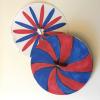
Opti-Top
Source Institutions
In this activity, learners will create an optical illusion top. Learners will explore color mixing, physics and design through this activity.
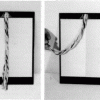
Gray Step
Source Institutions
In this activity, learners discover that it's difficult to distinguish between two different shades of gray when they aren't separated by a boundary.
